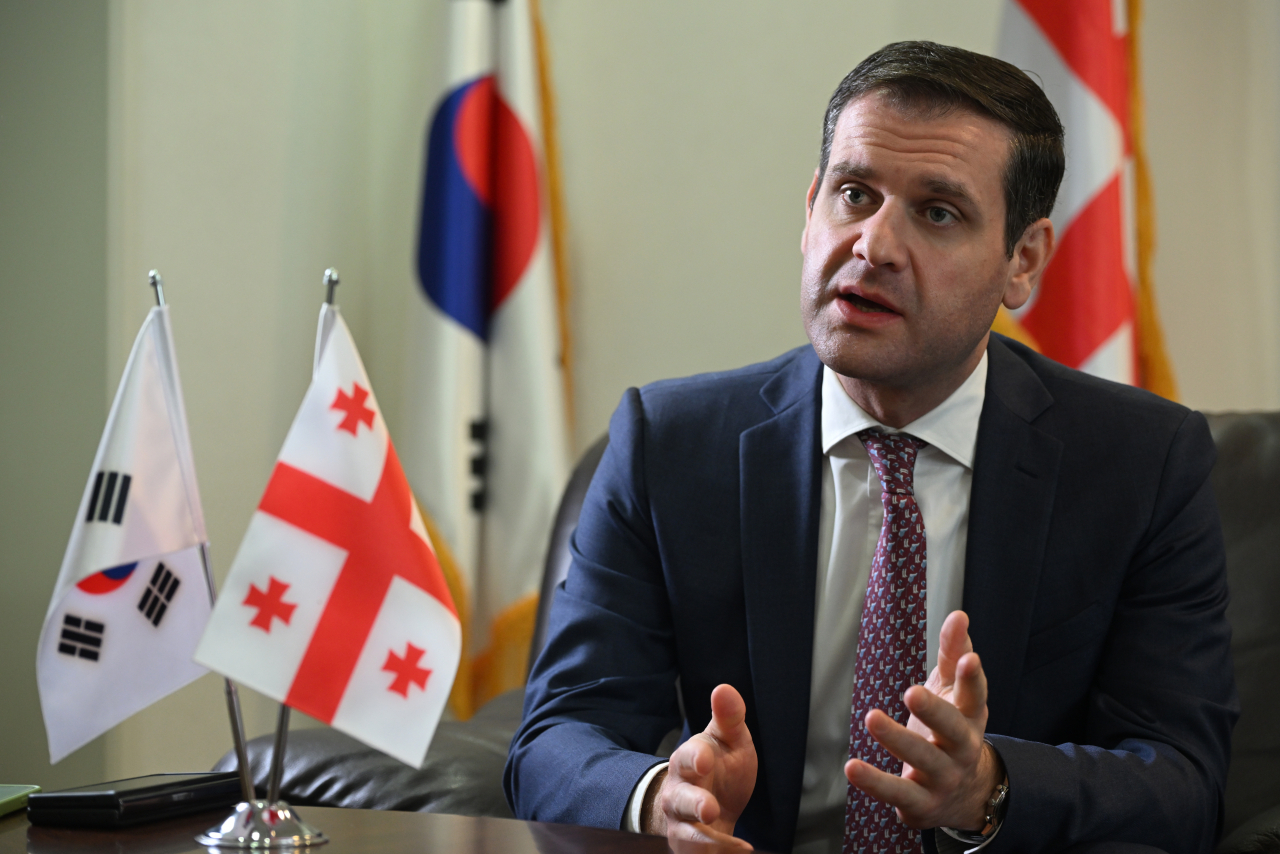 |
Genadi Arveladze, the Deputy Minister of Economy and Sustainable Development of Georgia speaks in an interview with The Korea Herald at the Embassy of Georgia in Yongsan-gu, Seoul on Friday. (Im Se-jun/The Korea Herald) |
A Korea-Georgia free trade agreement would bring substantial benefits for Korea and Georgia, Genadi Arveladze, the Caucasus nation's deputy minister of economy and sustainable development, told The Korea Herald on Friday, as Georgia and Korea embarked on negotiations for a comprehensive free trade agreement.
“The agreement would not only help expand trade and investment but also provide a comprehensive institutional framework for a wide range of bilateral cooperation,” Arveladze said.
“We need, first of all, to sign this agreement to remove tariff barriers as well as non-tariff barriers.”
Arveladze visited Seoul to formally complete preparatory work for official negotiations on the Georgia-Korea Economic Partnership Agreement, or EPA and met the South Korean trade minister to sign a joint statement on the launch of the negotiations and terms of reference of the EPA.
Georgia has high strategic value as an energy corridor for major oil and gas transportation routes, and has a significant potential market connected to neighboring economic zones such as the European Union, Gulf Cooperation Council, and Commonwealth of Independent States.
The EPA with Georgia could enable the two sides to strengthen supply chain economic cooperation and expand exports and investments, according to the South Korean Trade Ministry.
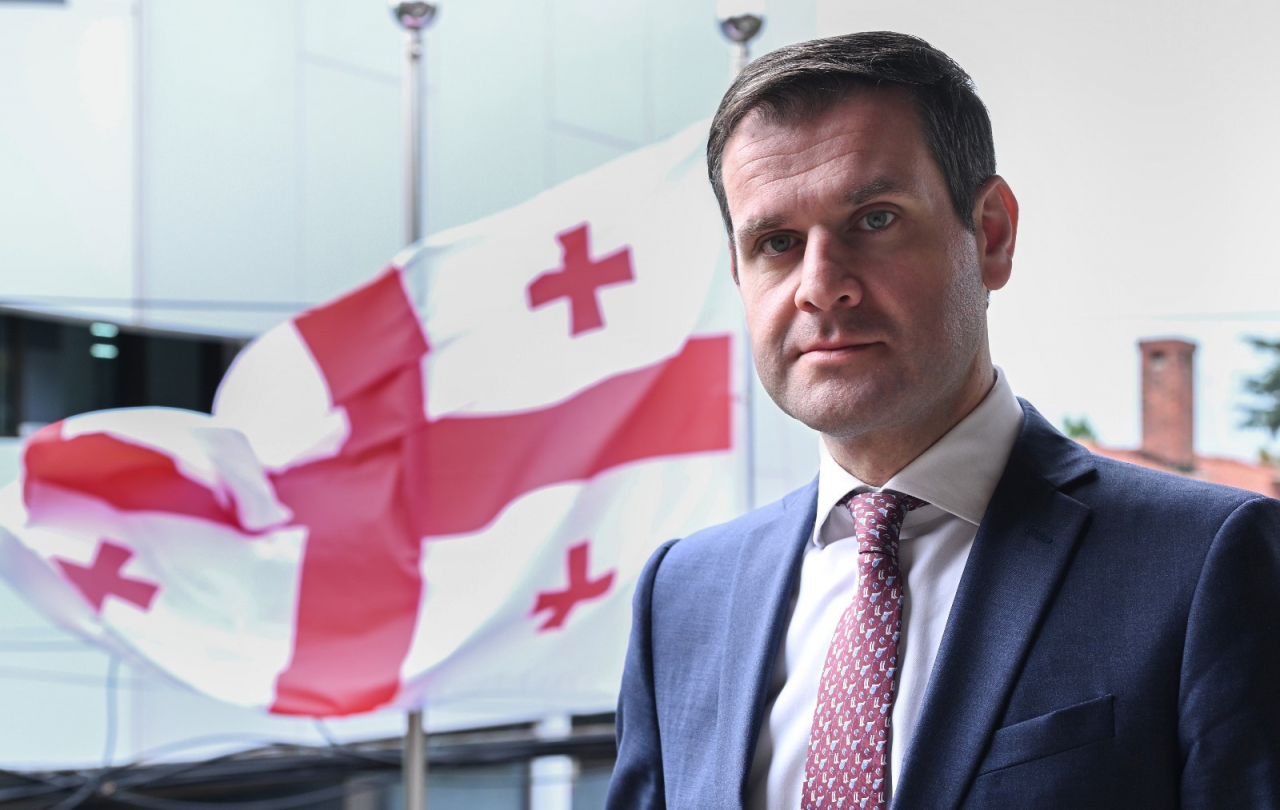 |
Genadi Arveladze, the Deputy Minister of Economy and Sustainable Development of Georgia speaks in an interview with The Korea Herald at the Embassy of Georgia in Yongsan-gu, Seoul on Friday. (Im Se-jun/The Korea Herald) |
“Negotiations will start in the first quarter of 2024,” Arveladze told The Korea Herald. “FTA is expected to be signed next year and will cover trade in goods and services while enhancing sectoral cooperation in renewable energy, e-commerce, environment and related fields.”
The agreement will also address non-tariff barriers related to sanitary and phytosanitary measures, technical barriers to trade, customs cooperation, and intellectual property rights, protecting Georgian geographical indications, he said.
When asked about the feasibility study results on the free trade agreement, the deputy minister said that the results showed mutual advantages for Georgia and Korea, stressing the current $100 million in bilateral trade as just the tip of the iceberg.
“There is untapped potential that can be explored and utilized,” said Arveladze.
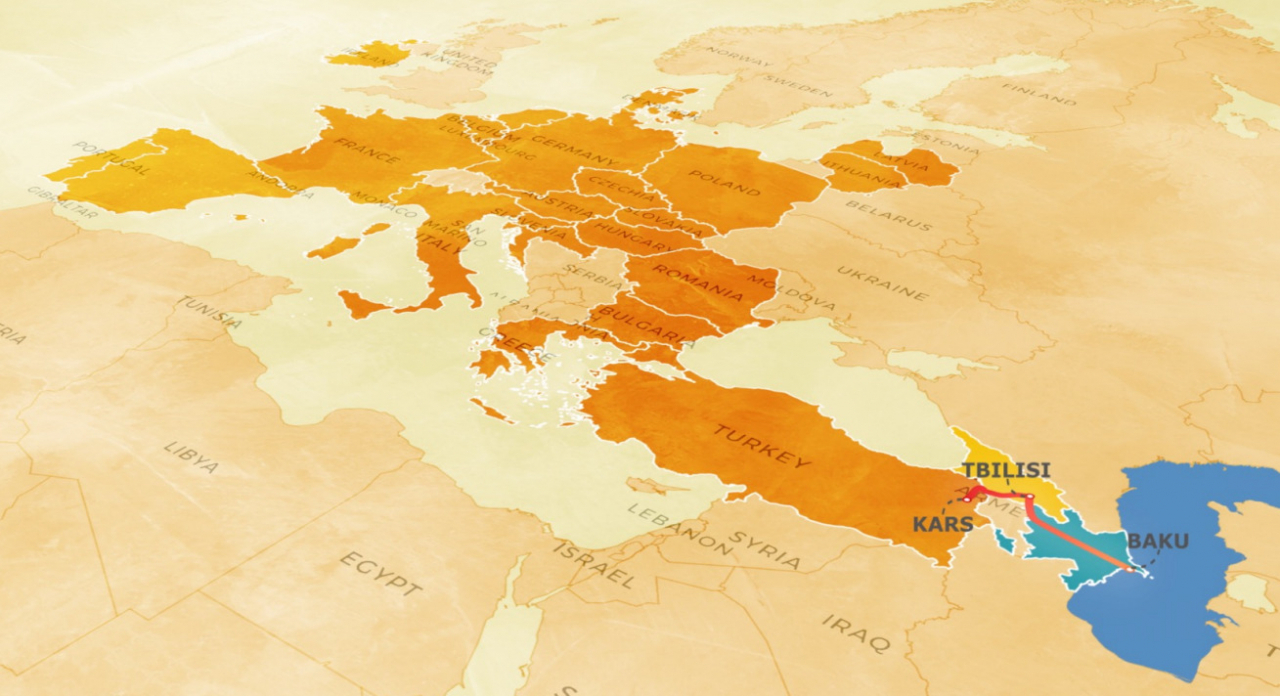 |
Map showing the railway network connecting Baku(Azerbaijan), Tbilisi(Georgia) and Kars(Turkey). (Embassy of Georgia in Seoul) |
“Dissimilarity in economic structure and trade pattern between the two countries shows that the economies of Korea and Georgia are complementary to each other,” said Arveladze, adding that the FTA will open up opportunities for Georgian goods such as wine, nuts, fertilizers, dried fruits, vegetables, and more to enter the Korean market.
According to Arveladze, Korean businesses should tap into Central Asian and European markets, leveraging Georgia’s strategic location and the regional situation as a pivotal regional hub for trade, logistics, transportation, and energy in the Black Sea region, driven by the Ukraine conflict and Russian aggression.
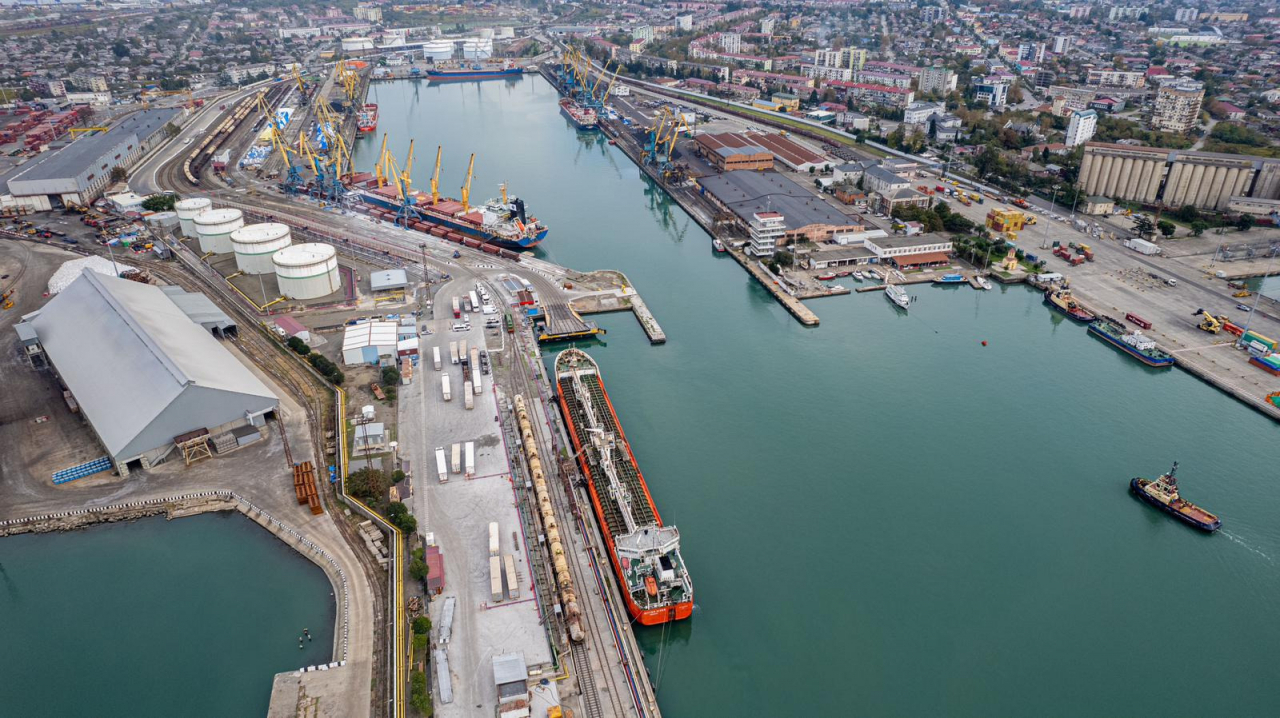 |
Georgia is a transport and logistic hub aiming to serve as an entry gate to the Caucasus and Central Asia. (Embassy of Georgia in Seoul) |
"Trans-Caspian Corridor" connects Asia through Georgia to the Black Sea via Turkey, positions Georgia as a gateway and presents opportunities for increased cargo flows and value chain development, he said, suggesting Korean companies utilize Georgia’s business-friendly environment, low taxes, and efficient bureaucracy.
Georgia's regulatory quality and government effectiveness are ahead of the regional average and several EU countries, and its strategic location, strong growth performance, institutional set-up, and aspirations to harmonize Georgia’s regulatory framework with the EU ensure interconnectedness, diversify, and expand Europe-Asia trade routes, said Arveladze.
Arveladze referred to Georgia as a reliable partner for ensuring uninterrupted and secure transit of natural gas and crude oil across the South Caucasus Energy Corridor, the transit of energy resources, and supply chains for energy security in regional and EU member countries.
 |
(Georgian Embassy in Seoul) |
“We welcome and are actively seeking the interest of South Korean investors in greenfield projects to support the utilization of renewable energy, the development of transport and logistics services, as well as new technologies, including resource-efficient, innovative, and clean production,” Arveladze said.
Arveladze sought participation from South Korean companies interested in the energy, infrastructure, and technology sectors, citing projects such as the Anaklia Deep Sea Port, projected to accommodate 650,000 TEUs (twenty-foot equivalent units) the East-West Highway project and the Baku-Tblisi-Kars rail line He also pointed to the modernization of Georgia's existing railway network, as well as the undersea cable initiative--The Black Sea Submarine Electricity Cable project linking Georgia to the European Union, spanning nearly 1,200 km.
“Georgia presents a compelling spectrum of opportunities, backed by a strong commitment from the government,” said the deputy minister.
Arveladze stressed that Georgia's open trade policy and shared vision with Korea create a conducive environment for accelerated economic ties.
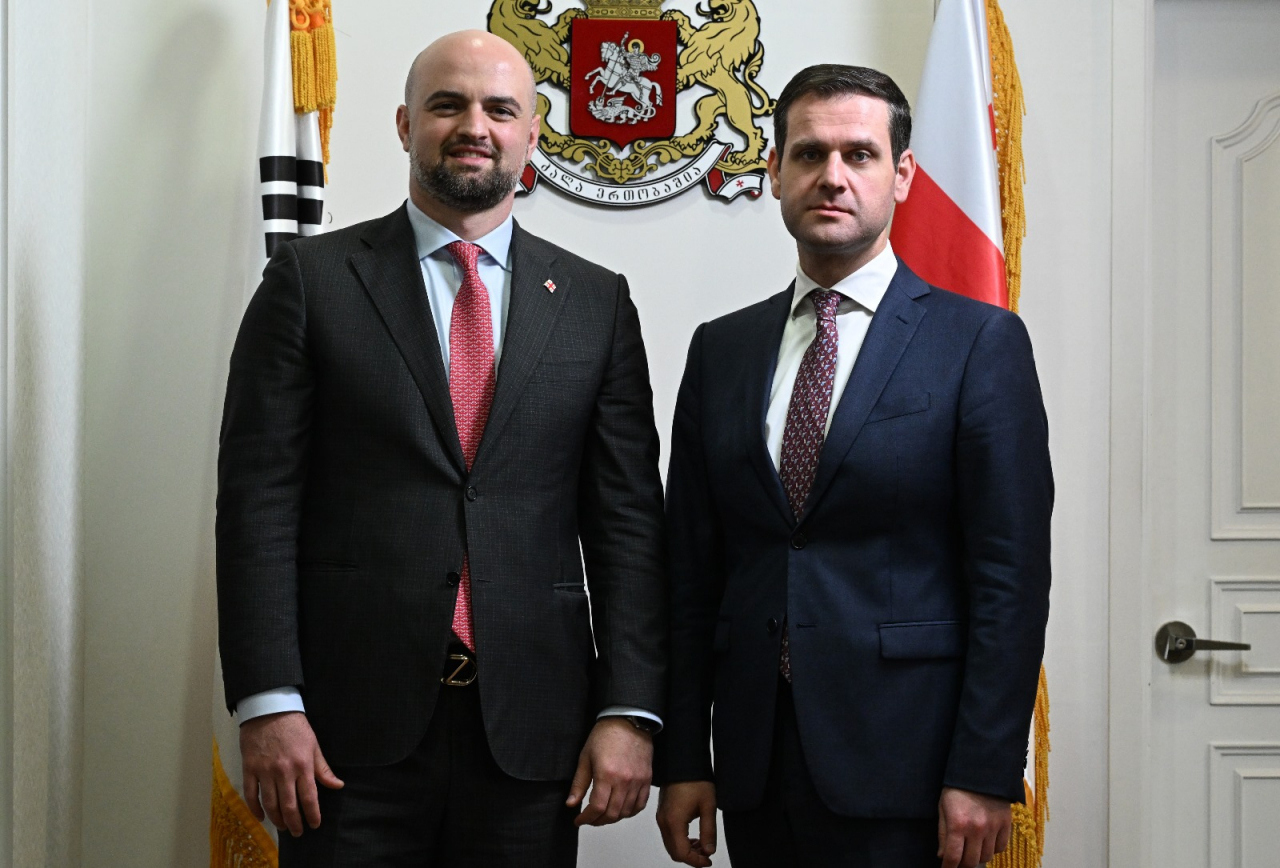 |
Genadi Arveladze, the Deputy Minister of Economy and Sustainable Development of Georgia, and Georgian Ambassador to Korea Tarash Papaskua pose for a photo ahead of an interview with The Korea Herald at the Embassy of Georgia in Yongsan-gu, Seoul on Friday. (Im Se-jun/The Korea Herald) |
According to Georgian ambassador to Korea Tarash Papaskua, who also accompanied the deputy minister during the interview, Korea has officially decided to open its embassy in Georgia to elevate the status of its diplomatic representation, which is likely to be effective in July 2024 and signifies Korea's increased engagement with the region.
Recalling President Yoon Suk Yeol's recent visit to Ukraine, which aimed to enhance Korean participation in Ukraine's development efforts, Papaskua and Arveladze hoped that the Korean Embassy in Georgia would promote trade, economic relations, and investment opportunities.
Meanwhile, the deputy minister also commented on the popularity of Georgia as a tourist destination, highlighting the visit of more than 11,000 visitors from Korea in nine months of this year.
The resumption of Seoul-Tbilisi charter flights from May to October next year will significantly contribute to more tourist flows and generate new momentum in bilateral economic exchanges,” Arveladze said.







